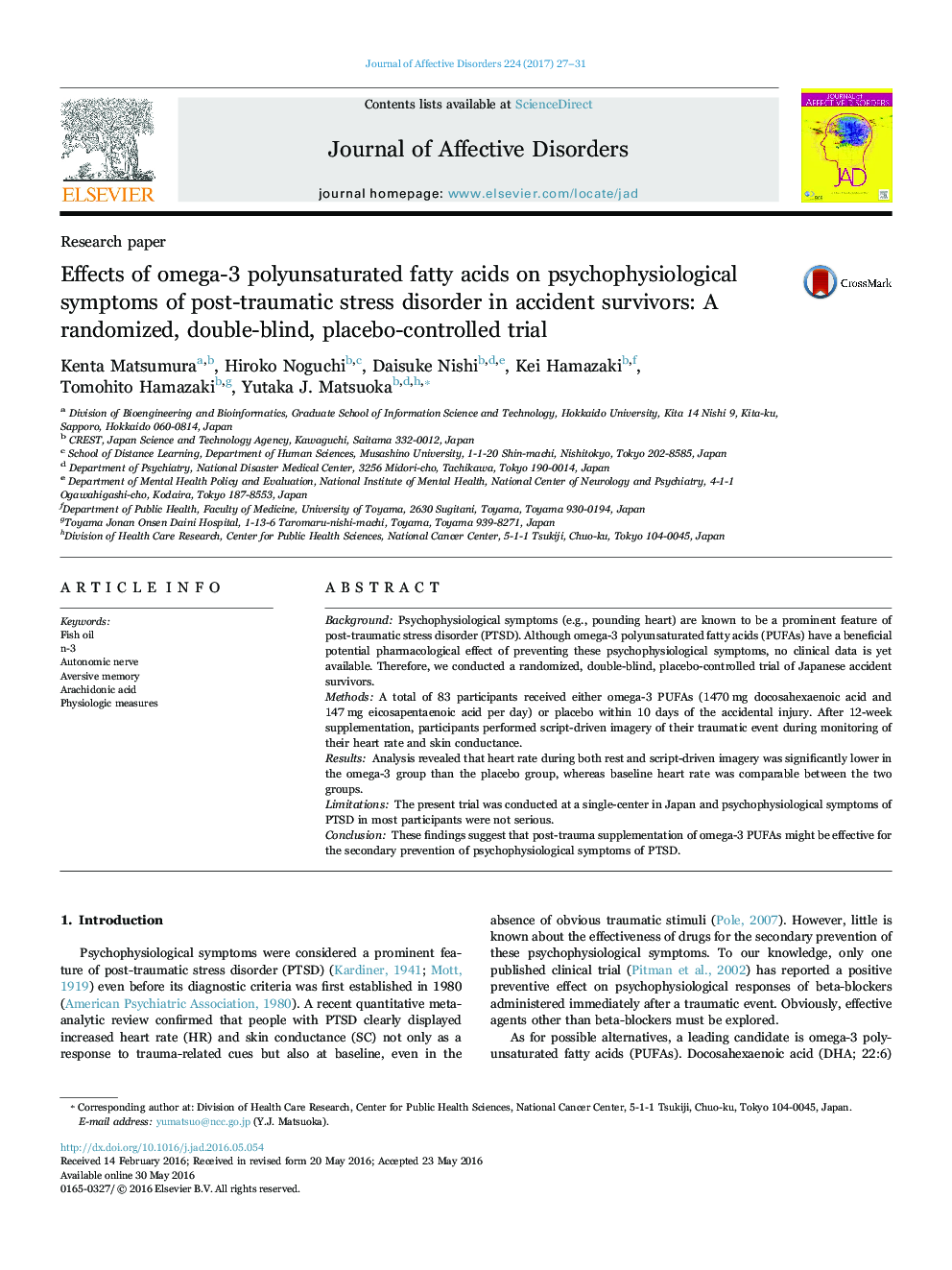| Article ID | Journal | Published Year | Pages | File Type |
|---|---|---|---|---|
| 5721820 | Journal of Affective Disorders | 2017 | 5 Pages |
â¢Heightened heart rate is known to be a prominent feature of PTSD.â¢Omega-3 polyunsaturated fatty acids may prevent these physiological symptoms.â¢We conducted a randomized, placebo-controlled trial of 83 Japanese accident survivors.â¢Heart rate three months after the event was significantly lower in the omega-3 group.â¢Omega-3 may be effective for secondary prevention of physiological symptoms of PTSD.
BackgroundPsychophysiological symptoms (e.g., pounding heart) are known to be a prominent feature of post-traumatic stress disorder (PTSD). Although omega-3 polyunsaturated fatty acids (PUFAs) have a beneficial potential pharmacological effect of preventing these psychophysiological symptoms, no clinical data is yet available. Therefore, we conducted a randomized, double-blind, placebo-controlled trial of Japanese accident survivors.MethodsA total of 83 participants received either omega-3 PUFAs (1470Â mg docosahexaenoic acid and 147Â mg eicosapentaenoic acid per day) or placebo within 10 days of the accidental injury. After 12-week supplementation, participants performed script-driven imagery of their traumatic event during monitoring of their heart rate and skin conductance.ResultsAnalysis revealed that heart rate during both rest and script-driven imagery was significantly lower in the omega-3 group than the placebo group, whereas baseline heart rate was comparable between the two groups.LimitationsThe present trial was conducted at a single-center in Japan and psychophysiological symptoms of PTSD in most participants were not serious.ConclusionThese findings suggest that post-trauma supplementation of omega-3 PUFAs might be effective for the secondary prevention of psychophysiological symptoms of PTSD.
